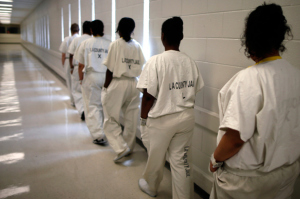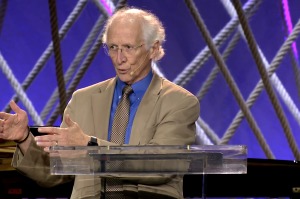US decline in religious affiliation may be slowing: researchers

The much-documented decline in religious affiliation among United States citizens may finally be slowing down, according to recent research.
Melissa Deckman, a Public Affairs professor at Washington College and affiliated scholar with the Public Religion Research Institute, recently examined religious trends among millennials and Gen Z. She found that millennials, Americans born between 1981 and 1996, and Gen Z, Americans born after 1996, are “awfully similar” to each other regarding “religious affiliation and religious behavior.”
“… the percentage of Gen Z Americans who identify as religiously unaffiliated is similar to the Millennials found in PRRI’s 2016 American Values Survey,” wrote Deckman in a report published by Religion in Public, titled “Generation Z and Religion: What New Data Show.”
“In other words, it appears that the rate of younger Americans departing from organized religion is holding steady, so conflating Gen Zers with Millennials is not necessarily inappropriate when it comes to religious affiliation—at least so far.”
Comparing Gen Z individuals surveyed last year and millennials surveyed in 2016, she found an equal percentage identifying as religiously unaffiliated (38 percent).
Past research by various organizations, notably Pew Research Center, had reported declines in religious affiliation when comparing older generations of Americans to younger ones.
Citing other research, Deckman noted that the willingness to identify as “atheist” among Gen Z individuals was only “slightly higher” than millennials.
She did note that in some areas, Gen Z was more secular than the general population. For example, Gen Z was more likely than older generations to report rarely or never attending church and Gen Z had a smaller gender gap in religious practice than other generations.
“As is the case with church attendance, Gen Z women defy historical norms as they are just as likely to be religiously unaffiliated as Gen Z men,” she said.
“However, Gen Z Americans who are white are less religiously affiliated than those who are black or Latinx, which corresponds to historical patterns. African Americans from Gen Z are less likely than their white or Latinx counterparts to identify as Atheists.”
Paul A. Djupe of Denison University and Ryan P. Burge of Eastern Illinois University authored a companion piece to the Deckman report, examining trends from the General Social Survey, the 2018 Cooperative Congressional Election Study, and the recently released Voter Study Group panel.
“It is conventional wisdom at this point that the incidence of religious nones is on a steady rise after 1994. Driven by a mix of politics, scandal, and weak parental religious socialization, non-affiliates have risen from about 5 percent to 30 percent,” they wrote.
“From this evidence, we expected that the rate of being a none among Gen Z might be even higher, leading to a bump above Millennials. The initial, small sample estimate from the General Social Survey, however, suggests that Gen Z is not outpacing Millenials and may have even fallen behind.”
Looking at the 2018 CCES, Djupe and Burge reported that 42.8 percent of Millennials reported being “nones,” with 42.9 percent of Gen Z reporting the same, or a difference well below 1 percent.
Regarding the reason for this slowing, Djupe and Burge cited multiple possibilities, including a drop in the number of people shedding religious labels out of respect, more whites turning to conservative churches in response to the nation’s growing diversity, and possible changes among Americans who identify as “nothing in particular” as opposed to “atheist” or “agnostic.”
“… those who call themselves ‘nothing in particular’ are not the same politically or religiously as atheists and agnostics,” wrote the researchers.
“NIPs fall in and out of religion but are mostly just disengaged. One possibility is that the great disengagement is slowing as well.”





























